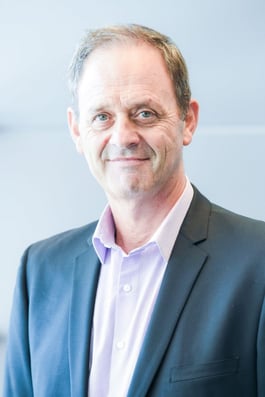While we have not seen substantive legislative change across
areas that impact private business (aside from superannuation), there is a
clear change of thinking around policies that generations of private client
advisers have, more or less, taken for granted.
evolving, they nevertheless must be taken into account when advising clients,
particularly as decisions taken today in the context of existing laws may have
long-term consequences in a new legislative environment.
illustrate how modern advisers need to be both proactive and prepared to go on
the defensive at the same time.
being proactive while ready to defend:
- Looking at that old cliché,
that proper preparation prevents poor performance - Outlining how keeping
an eye on the horizon can pay dividends when you’re making decisions today - What happens when you do find yourself on the defensive?
In this year’s keynote address at the Retreat, Springfield City Group Managing Director, Raynuha Sinnathamby, will pose the question ‘How did the
advisers go?’
quantitative analysis in almost every instance, since the role and actual
efficacy of advisers or ‘consultants’ is an important and sometimes vexed one.
the adviser has the skills, experience, understanding of the task, and of the
business of the company, as well as capacity to complete, can set both adviser
and business up for trouble. Clarity around the parameters is also important to
avoid extended engagements or unbudgeted costs.
ultimate planned population of 105,000 by 2030. This $32 billion development recently
won the Urban Development Institute of Australia’s national award for best
master-planned development.
complete the Greater Springfield city building project necessitates the use of advisers. This provides a good case study for the topic at hand.
A solicitor by profession, Raynuha has also served as Vice
President and President of the Queensland Division of the Property Council of
Australia and has served on the National Board of the Property Council of Australia. She currently serves on the Property Council Queensland Division Council and
Management Council.
the right team in place before a project starts, the session from The Tax
Institute’s own Professor Robert (Bob) Deutsch, CTA will look at a potential, hypothetical future state – highlighting the importance of keeping an eye on the
horizon, planning today so you and your clients are ready for any eventuality.
 |
Prof Robert |
On day two of the Retreat, Bob will present a session entitled ‘Ongoing
use of trusts after the next election’.
incorporate how trusts are being used. Last year saw much media attention paid
to Labor’s pronouncements regarding changes to trusts and, with an election due
sooner rather than later, advisers should consider the potential impacts of a
change in government and a change in policy.
recently served as a Deputy President of the Administrative Appeals Tribunal.
For over 20 years he was a Professor in Taxation Law at the University of New
South Wales, is experienced as a solicitor with a major national law firm, as
an independent barrister, and as a director with a major accounting firm.
taken and what the various future states could mean for practitioners and their
clients. He will address the details of the ALP’s policy, comparing and
contrasting the official position of both the current government and Treasury,
while offering a fresh look at the non-tax attributes of trusts, such as estate
planning, asset protection, and flexibility.
defensive, and how can some pre-planning for this eventuality make the process
easier?
including removing 'tax purposes' from a permissible counter-factual scenario.
Most advisers can spot flagrant breaches of Part IVA, but what about those arrangements
that sail closer to the line? Is Part IVA now too restrictive?
 |
Steve Lutz CTA and Cameron Blackwood CTA |
Following on from the plenary sessions, which will look at the Part
IVA issues facing SMEs and the areas attracting the commissioner’s attention, a
panel of anti-avoidance experts, including members of the General
Anti-Avoidance Review Panel, will discuss and debate the current state of play
and the future direction of anti-avoidance in Australia.
panel will comprises Cameron Blackwood CTA (Greenwoods & Herbert Smith
Freehills), Martin Jacobs (ATO), Fiona Knight CTA (ATO), and Professor Robert
Deutsch CTA (The Tax Institute).
further changes need to be made to Part IVA to improve certainty for taxpayers.
program has been designed to deliver the most up-to-date thinking on many of
the private client advisers’ most common tools in trade and to bring to light
emerging trends which may impact them.
perspectives, the purpose of the retreat is to not only deliver new thinking
around daily adviser issues, but also to provide practical take-outs for common
client circumstances, issues and objectives.
program.
Please join us on 31 May–1 June at the Palazzo Versace on
the Gold Coast.










